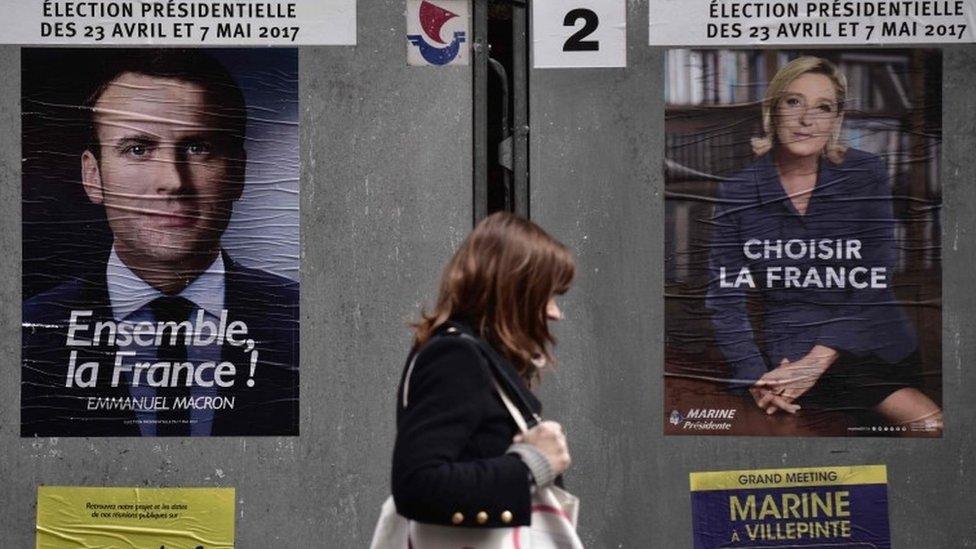French election: Turnout sharply down in Le Pen-Macron battle
- Published
The two candidates, along with French citizens around the world, have voted
Turnout in the French presidential election is so far sharply down on the past two polls as voters choose between Emmanuel Macron and Marine Le Pen.
A turnout of 65.3% was recorded at 17:00 local time (15:00 GMT) in an unpredictable campaign that has divided the country.
The bitterly fought poll was concluding on Sunday amid massive security.
The final polling stations close at 20:00 (18:00 GMT), with the result set to be reported immediately afterwards.
The vote is being closely watched across Europe, as the results could heavily affect the future of the European Union.
Live updates: France elects a new president
Both candidates voted early on Sunday in the north of France.
The centrist Mr Macron, a 39-year-old former investment banker, cast his ballot near his home in the seaside resort of Le Touquet.
Ms Le Pen, the 48-year-old far-right nationalist, voted in the working class town of Hénin-Beaumont, a stronghold of her National Front party. Both are due back in Paris later in the day.
If Mr Macron wins, his supporters would celebrate in the courtyard of the Louvre. The area was briefly evacuated on Sunday after a suspect bag was found.
A Le Pen victory would be celebrated at the Chalet du Lac in the Bois de Vincennes, on the eastern edge of the capital.
What is the choice facing voters and what is the turnout?
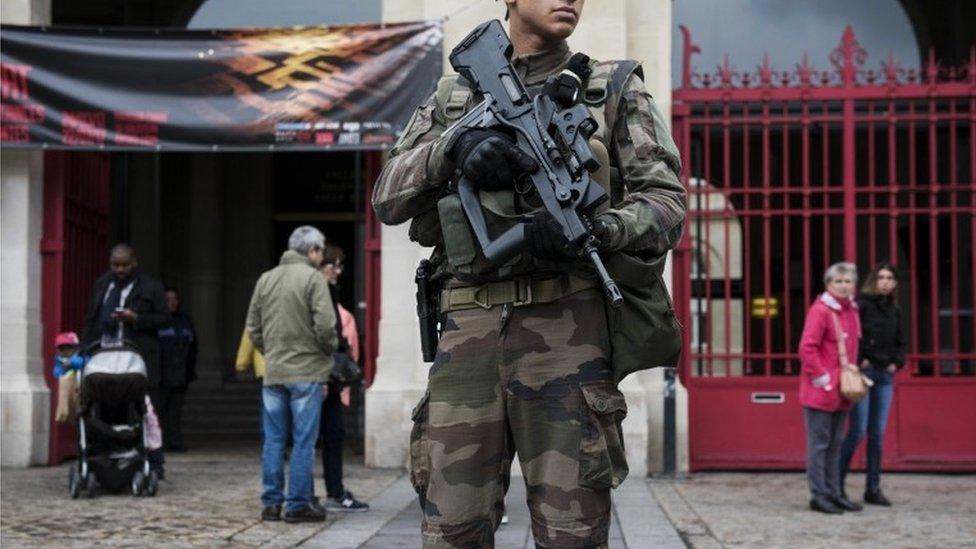
The vote is taking place amid tight security
The participation rate reported by the interior ministry for this election at 17:00 was more than six points lower than the 72% recorded at the same time in 2012 and nearly 10 points down on the 75.1% of 2007.
In fact, it is lower than all the elections back to 1981.
Analysts have said that there could be a high abstention rate, which may damage Mr Macron's chances.
The two candidates have offered voters starkly different visions of France.
Mr Macron, a liberal centrist, is pro-business and a strong supporter of the European Union, while Ms Le Pen campaigned on a France-first, anti-immigration programme.
She wants France to abandon the euro in the domestic economy, and hold a referendum on France's EU membership.
Emmanuel Macron's unconventional route to political stardom in France.
How Marine Le Pen's past has shaped who she is today

Read more:

Why is the vote important?
France is set to elect either its first female leader, or its youngest-ever president.
This election also marks a new phase in French politics. For the first time, neither of the main parties - the Socialists and the Republicans - has a candidate in the run-off.
The run-off will also be keenly watched across Europe, because it comes ahead of elections in Germany and the UK, and as Britain negotiates its exit from the EU.
What's this about a hacking attack?
On Friday evening, soon before campaigning officially ended, Mr Macron's En Marche political movement said it had been the victim of a "massive" hack, with a trove of documents released online.
The Macron team said real documents were mixed up with fake ones, and electoral authorities warned media and the public that spreading details of the attack would breach strict election rules and could bring criminal charges.
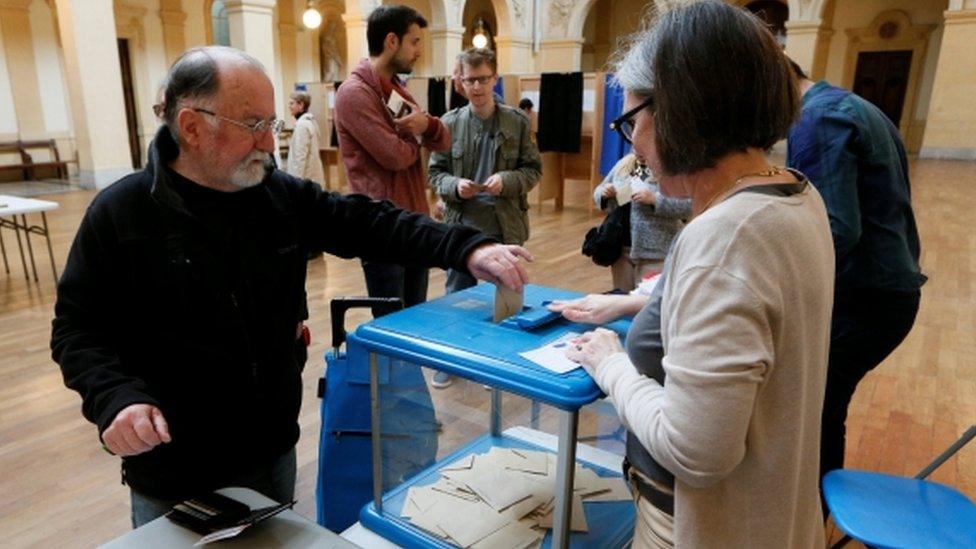
An early-rising voter casts his ballot in Lyon
En Marche compared the hack to the leak of Democratic Party emails in last year's US presidential election that was blamed on Russian hackers.
Mr Macron has previously accused Moscow of targeting him with cyber attacks, which Russia strongly denied.
On Saturday, French President François Hollande promised to "respond" to the attack.
What are the key issues in the campaign?
Apart from the EU, management of the economy, security and immigration have all featured in the campaign.
One of the overriding issues is unemployment, which stands at almost 10% and is the eighth highest among the 28 EU member states. One in four under-25s is unemployed.
The French economy has made a slow recovery from the 2008 financial crisis and both candidates say deep changes are needed.
Where's an unpopular president to go?
Ms Le Pen wants the pension age cut to 60 and to "renationalise French debt", which she argues is largely held by foreigners.
Mr Macron wants to cut 120,000 public-sector jobs, reduce public spending by €60bn (£50bn; $65bn), plough billions into investment and reduce unemployment to below 7%.
Read more: Economic challenges facing next president
On foreign policy, Mr Macron opposes any rapprochement with Russia, while Ms Le Pen met Vladimir Putin in Moscow recently and has previously stated her approval of Russia's 2014 annexation of Crimea.
How much power will the winner have?
The presidential election will be followed by legislative elections on 11 and 18 June.
Whoever wins the presidency will need to perform well in those crucial elections if they want to win a parliamentary majority to push through their proposals.
However, Mr Macron, who quit the Socialist government of President Hollande to found his new political movement, currently has no MPs, while Ms Le Pen has only two.
The candidates in depth:

BBC coverage
You can follow the French election on the BBC News website. Click here for all our latest stories.
We are running a live page, bringing together the latest news, video and analysis.
On TV, you can watch a BBC World News Election Special, from 18:30 BST, which will be broadcast on BBC News in the UK and on BBC World News internationally, with Christian Fraser presenting from Paris.
For radio, BBC World Service will broadcast a special extended edition of Newshour from Paris at 18:00 GMT on Sunday.
- Published7 May 2017
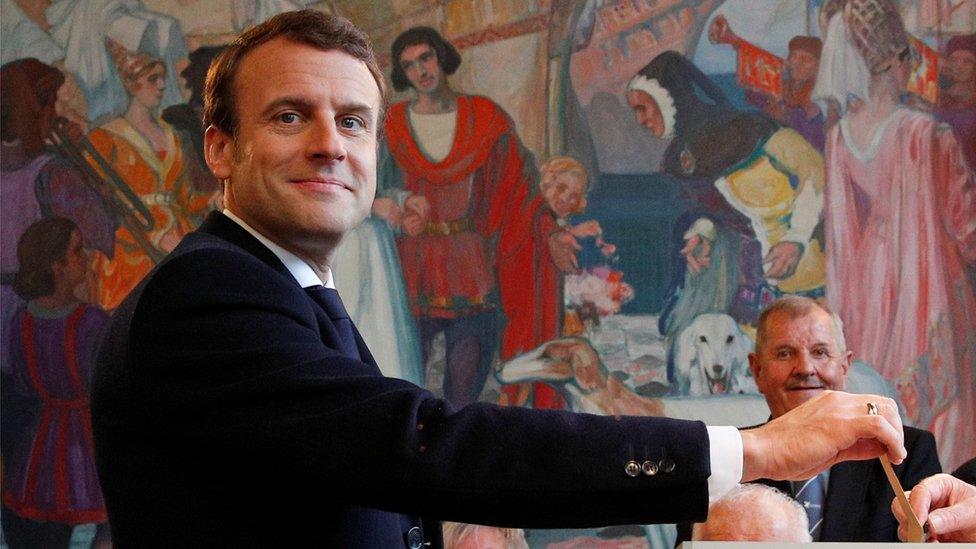
- Published24 April 2017
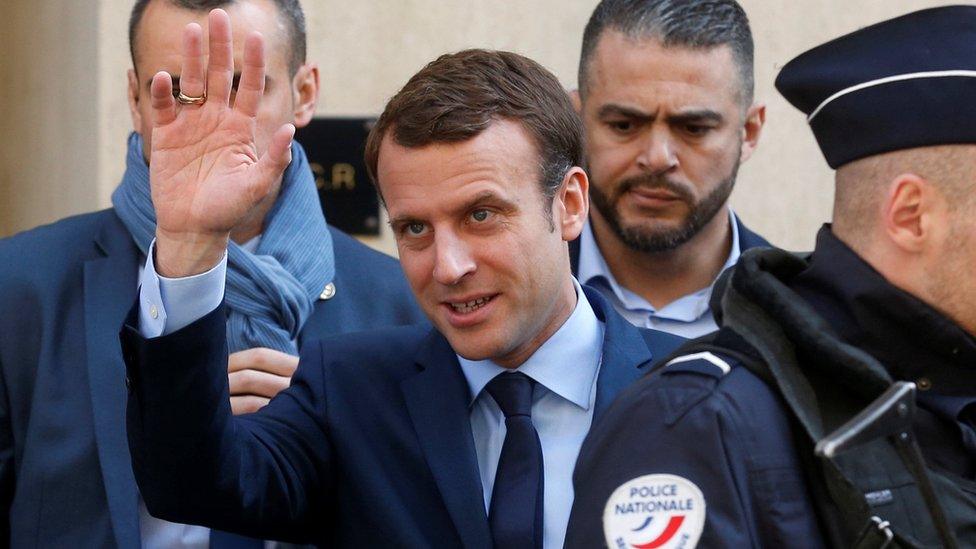
- Published2 May 2017
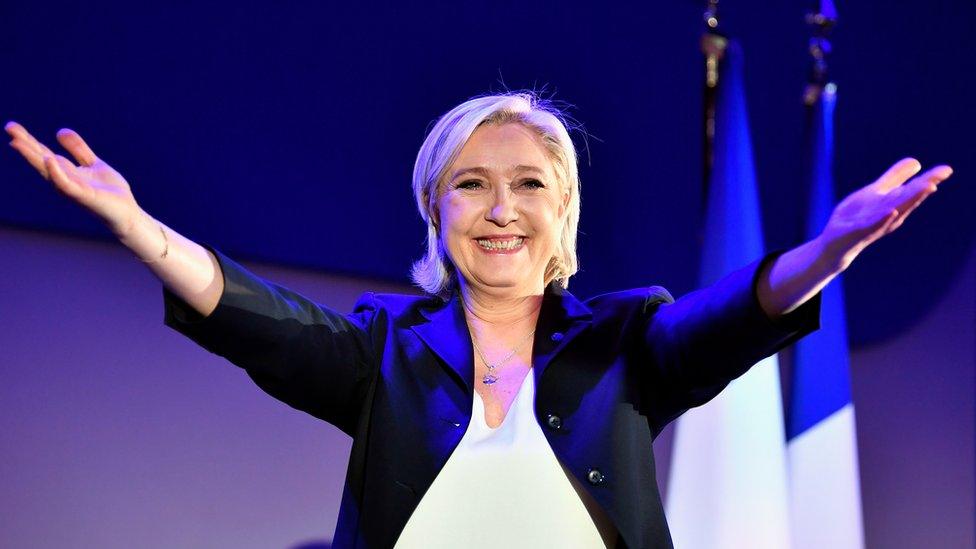
- Published3 May 2017
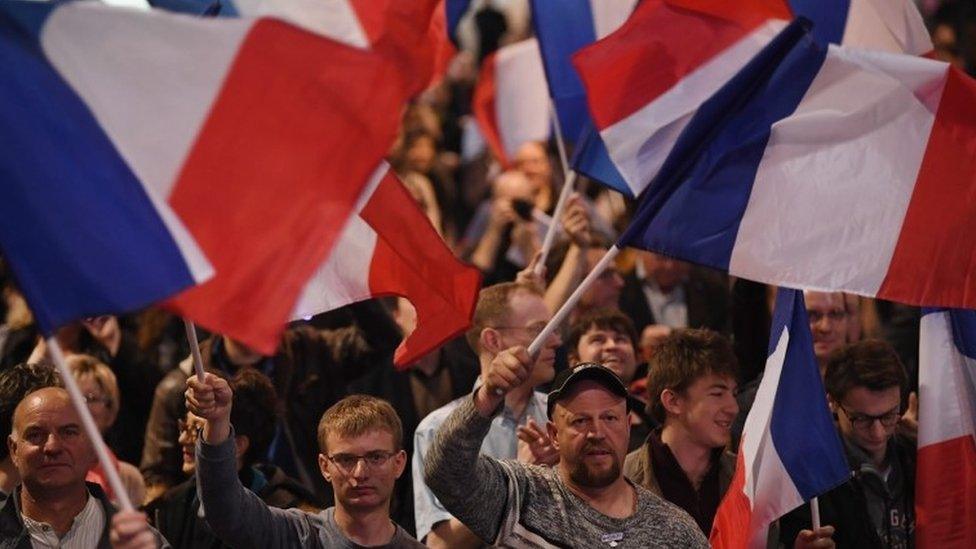
- Published2 May 2017
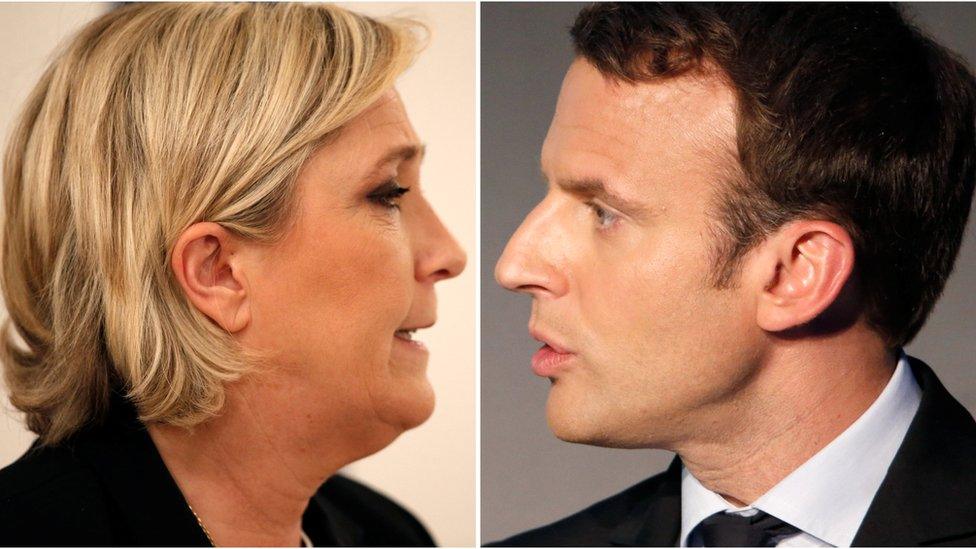
- Published6 May 2017
